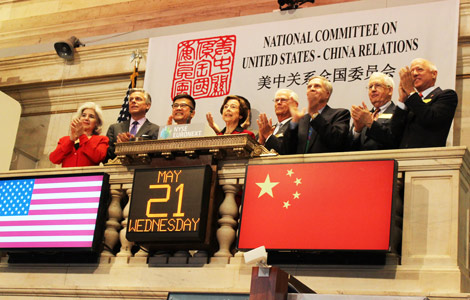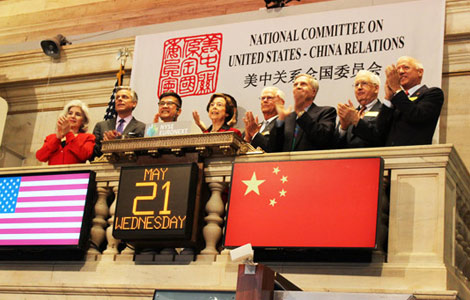Foreign tech firms to face tougher times
Updated: 2014-05-23 07:06
By Gao Yuan (China Daily)
|
||||||||
 |
|
Participants compete in a national cybersecurity skills contest in Nanjing, Jiangsu province, on May 2, 2014. China announced on Thursday that it will begin cybersecurity vetting of major computer and network products and services. [SUN CAN/XINHUA] |
Foreign technology companies will have a hard time in China - at least in the short run - after the world's largest computer and Internet market is set to impose a review policy on imported network and technology equipment and services.
The country will launch a cybersecurity testing program on major information technology products and services used in national security and other public interest segments, a government statement said on Thursday.
Analysts said the announcement comes as China confronts the United States on Internet safety issues.
 |
 |
Gene Cao, senior analyst at Forrester Research, said: "With tightening supervision measures on overseas IT products in government procurement, businesses in the affected sectors will be less willing to buy from foreign companies."
Microsoft, Cisco and Juniper Networks declined to comment on Thursday.
"I don't think the vetting program will have any big impact on IBM's business in the country," said an anonymous source at the US company. "We have been providing IT products in mission-critical sectors such as finance. An industry-level IT system testing mechanism has been in place for many years."
Less than a week ago, China barred newly purchased government computers from installing Windows 8. Microsoft described the decision as "unexpected".
It is clear the government wants to see a higher adoption rate of local IT products. But years of official support failed to produce IT products strong enough to challenge global giants.
In February, Red Flag Software, once the largest Linux-based software vendor in China, closed because of poor financial performance.
The company, backed by the Chinese Academy of Sciences, was the biggest challenger of Windows systems in China, but it gained only a little brand awareness, even in State-controlled government projects.
Technological advantages may help overseas companies to survive in China despite tightening regulations, analysts suggested.
"Foreign vendors should localize more products and services in the country," said Cao from Forrester.
"They need to operate in China like local companies do."
Xinhua contributed to this story.

 World leaders wear gowns to collect certificates
World leaders wear gowns to collect certificates
 NYC comptroller honors Chinese businesswoman
NYC comptroller honors Chinese businesswoman
 JD.com makes US debut with $1.78b IPO
JD.com makes US debut with $1.78b IPO
 Chinese farmers' art paintings score at UN
Chinese farmers' art paintings score at UN
 Star fronts for ancient Chinese city
Star fronts for ancient Chinese city
 Former ambassadors ring the closing bell
Former ambassadors ring the closing bell
 Silk road shuffle
Silk road shuffle
 Largest Chinese group ever is visiting US
Largest Chinese group ever is visiting US
Most Viewed
Editor's Picks

|

|

|

|

|

|
Today's Top News
Checks to help ensure cybersecurity
Opinion: The pot calls the kettle black
Russia, China veto draft UN resolution on Syria
US condemns terror attack in China's Xinjiang
Foreign tech firms to face tougher times
Shares of JD.com soar 17% in market debut
Obama puts out 'Tourists Welcomed' sign
Lucy Li, at age 11, makes US golf history
US Weekly

|

|








